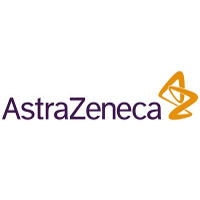FDA Grants Full Approval for TAGRISSO

FLASCO Diamond Corporate Member, AstraZeneca, is pleased to inform you that the US Food and Drug Administration (FDA) granted full approval for TAGRISSO® (osimertinib) 80mg once-daily tablets, for the treatment of patients with metastatic epidermal growth factor receptor (EGFR) T790M mutation-positive non-small cell lung cancer (NSCLC), as detected by an FDA-approved test, whose disease has progressed on or after an EGFR tyrosine kinase inhibitor (TKI) therapy.
The full approval is based the randomized, Phase III AURA3 trial, where TAGRISSO significantly improved progression-free survival (PFS) versus platinum-based doublet chemotherapy, providing 10.1 months of median progression-free survival compared to 4.4 months from chemotherapy (hazard ratio 0.30; 70% risk reduction; 95% Confidence Interval [CI]: 0.23; 0.41; P<0.001). Additionally, TAGRISSO demonstrated efficacy in patients with measurable central nervous system (CNS) lesions at baseline.
TAGRISSO was granted Fast Track, Breakthrough Therapy and Priority Review by the FDA, and received Accelerated Approval for this indication in 2015, based on tumor response rate and duration of response.
As personalized medicine evolves and targeted therapies like TAGRISSO are approved, it is increasingly important that patients get tested for mutations at diagnosis and again at disease progression, to ensure they can be identified for targeted medicines as appropriate.
To learn more, please visit https://www.tagrissohcp.com/.
IMPORTANT SAFETY INFORMATION
- There are no contraindications for TAGRISSO
- Interstitial Lung Disease (ILD)/Pneumonitis occurred in 3.5% and was fatal in 0.6% of 833 TAGRISSO-treated patients. Withhold TAGRISSO and promptly investigate for ILD in patients who present with worsening of respiratory symptoms indicative of ILD (eg, dyspnea, cough, and fever). Permanently discontinue TAGRISSO if ILD is confirmed
- Heart rate-corrected QT (QTc) interval prolongation occurred in TAGRISSO-treated patients. Of the 833 TAGRISSO-treated patients, 0.7% of patients were found to have a QTc > 500 msec, and 2.9% of patients had an increase from baseline QTc > 60 msec. No QTc-related arrhythmias were reported.Conduct periodic monitoring with ECGs and electrolytes in patients with congenital long QTc syndrome, congestive heart failure, electrolyte abnormalities, or those who are taking medications known to prolong the QTc interval. Permanently discontinue TAGRISSO in patients who develop QTc interval prolongation with signs/symptoms of life-threatening arrhythmia
- Cardiomyopathy occurred in 1.9% and was fatal in 0.1% of 833 TAGRISSO-treated patients. Left Ventricular Ejection Fraction (LVEF) decline ≥ 10% and a drop to < 50% occurred in 4% of 655 TAGRISSO-treated patients.Conduct cardiac monitoring, including an assessment of LVEF at baseline and during treatment in patients with cardiac risk factors. Assess LVEF in patients who develop relevant cardiac signs or symptoms during treatment. For symptomatic congestive heart failure or persistent, asymptomatic LV dysfunction that does not resolve within 4 weeks, permanently discontinue TAGRISSO
- Keratitis was reported in 0.7% of 833 TAGRISSO-treated patients in clinical trials. Promptly refer patients with signs and symptoms suggestive of keratitis (such as eye inflammation, lacrimation, light sensitivity, blurred vision, eye pain, and/or red eye) to an ophthalmologist
- Advise pregnant women of the potential risk to a fetus. Advise females of reproductive potential to use effective contraception during TAGRISSO treatment and for 6 weeks after the final dose. Advise males with female partners of reproductive potential to use effective contraception for 4 months after the final dose
- The most common adverse reactions (≥20%) in patients treated with TAGRISSO were diarrhea (41%), rash (34%), dry skin (23%), nail toxicity (22%), and fatigue (22%)
INDICATION
TAGRISSO is indicated for the treatment of patients with metastatic epidermal growth factor receptor (EGFR) T790M mutation-positive non-small cell lung cancer (NSCLC), as detected by an FDA-approved test, whose disease has progressed on or after EGFR tyrosine kinase inhibitor therapy.
Please see complete Prescribing Information including Patient Information.

